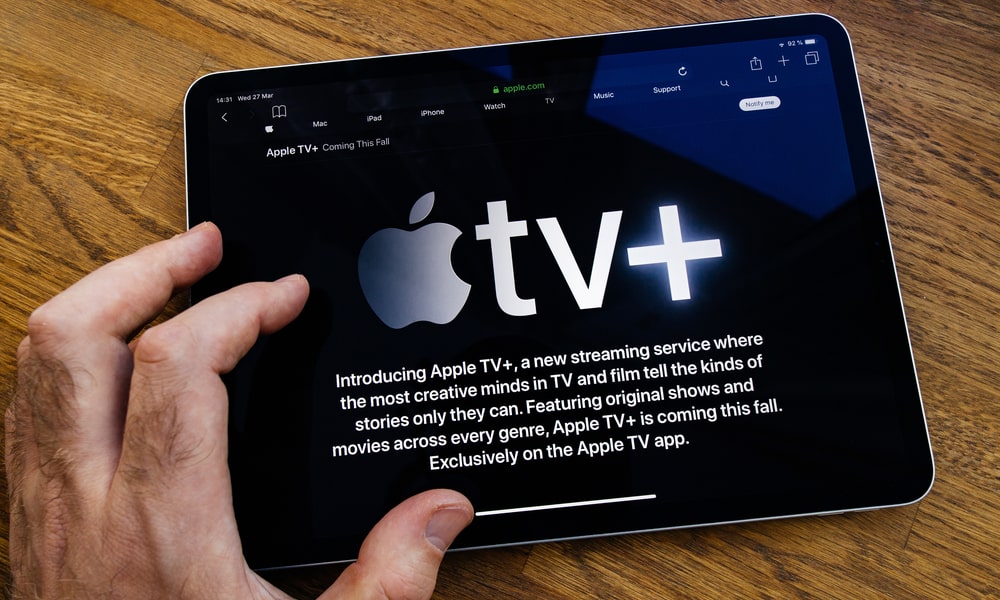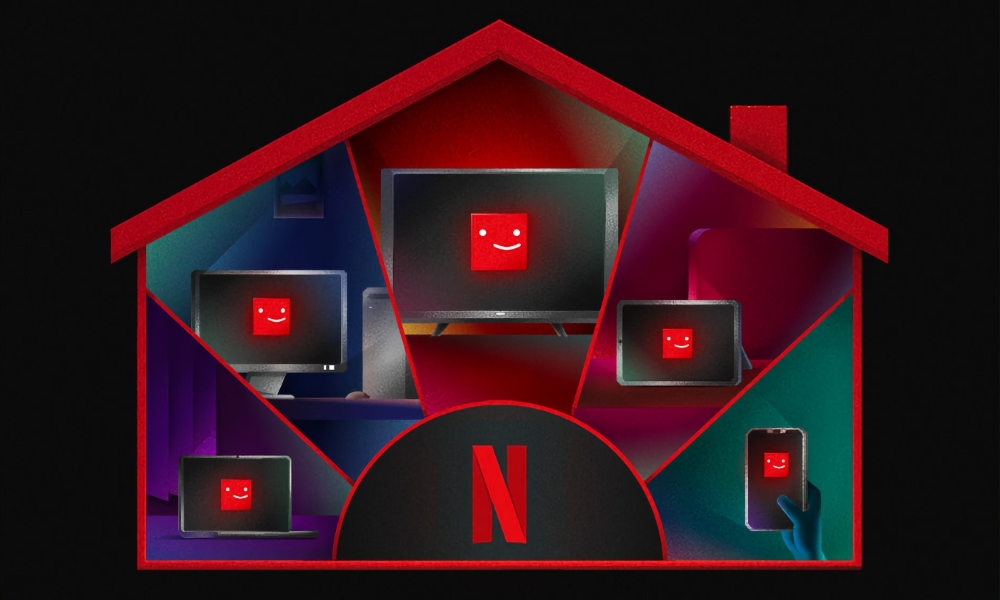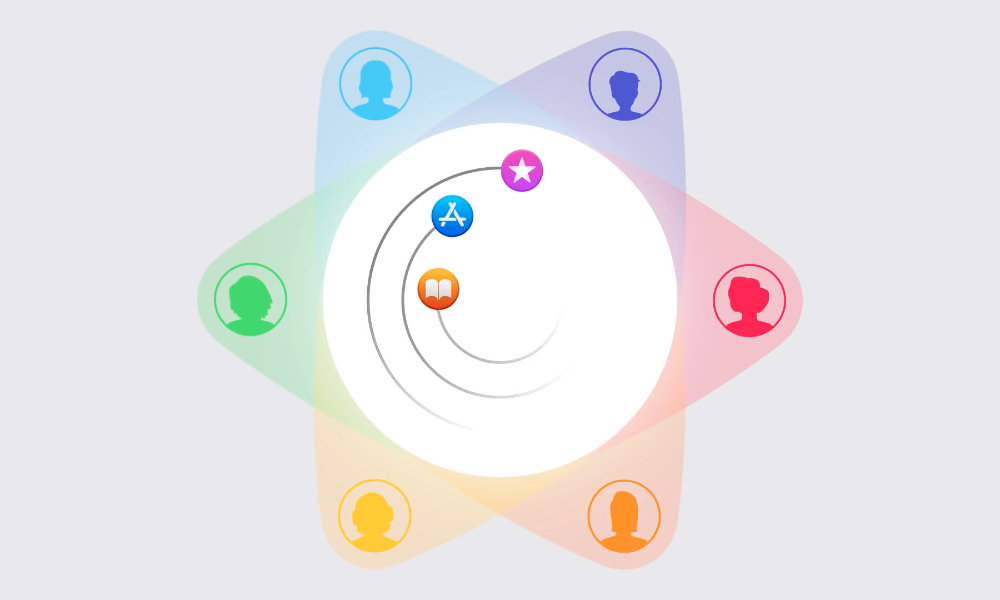Apple TV+ Is Getting a Price Hike
 Hadrian / Shutterstock
Hadrian / Shutterstock
Toggle Dark Mode
In a world where everything is getting more expensive, it’s probably not surprising that Apple is also increasing the price of Apple TV+. This marks the third bump since the service debuted nearly six years ago, but that seems to be par for the course across nearly every streaming service these days.
For instance, Disney+, which launched the same month as Apple TV+ in November 2019, has raised its prices four times over the same period, as has Netflix, not counting another price hike earlier that same year.
So, it’s inevitable that Apple TV+ will eventually follow suit. Effective today, an Apple TV+ subscription in the United States will increase from $9.99 to $12.99 monthly. New subscribers will pay that price immediately; however, current subscribers won’t see the price go up until 30 days after their next renewal date.
The good news is that Apple isn’t raising the price of its annual subscription, which is now an even better deal at $99 per year. Pricing also hasn’t changed for Apple One bundles, all of which include Apple TV+, and still start at $19.95 per month. Here’s the new breakdown:
- Apple TV+ (monthly): $12.99
- Apple TV+ (annually): $99 (works out to $8.25 per month)
- Apple One Individual (Apple TV+, Apple Music, Apple Arcade, 50 GB iCloud+): $19.95 per month
- Apple One Family (Apple TV+, Apple Music Family, Apple Arcade, 200 GB iCloud+): $25.95 per month
Apple TV+ launched in 2019 for only $4.99 per month. Apple stuck to that price, even in the face of increases from competitors, for three years before raising it to $6.99 monthly — a price increase the company justified by claiming the $4.99 was effectively a “very low” introductory price intended to get people on board when it had relatively little content available.
That $2 monthly bump wasn’t unreasonable when you consider that Apple had gone from having barely a dozen shows at launch to a much broader catalogue that included Emmy Award-winning hits like Ted Lasso. It had also made history earlier that year when CODA became the first movie on a streaming service to win an Oscar for Best Picture.
However, Apple presumably decided that its 2022 price hike wasn’t sufficient, as it raised prices again in 2023 from $6.99 to $9.99 monthly. Now, two years later, it’s upping it by $3 more.
The Apple TV+ Advantage
While many will reasonably argue that Apple TV+ doesn’t have the same level of content as many rival services, it still easily wins by offering a single, easy-to-understand plan that’s far more affordable than anything else out there.
You get 4K UHD streaming with HDR, Dolby Vision, and Dolby Atmos audio on up to six simultaneous screens and free sharing with everyone in your Apple Family Sharing group — up to five other family members, each with their own Apple Accounts and viewing profiles.
By comparison, the Netflix Standard plan only provides 1080p “Full HD” streaming on two screens. While multiple profiles are supported, you’ll need to share a single password unless you pay extra to add an “extra member” with their own account. To get 4K UHD streaming on four screens, you’ll need to pay $24.99 for Netflix Premium — nearly twice as much as the new Apple TV+ price. Disney+ does a bit better by offering 4K streaming on up to four devices on its Premium plan for only $15.99 per month.
It’s worth noting that both Netflix and Disney+ offer ad-supported plans for under $10 monthly, but these are limited to 1080p HD, and you’ll have to live with non-skippable ads.
Apple TV+ is also far less restrictive in its sharing restrictions. While all the other major streaming services have been actively cracking down on password sharing by doing things like monitoring IP addresses, Apple has been able to avoid this by tying an Apple TV+ subscription to an Apple Account.
Since an Apple Account is tied to so many other things in the Apple ecosystem, and includes payment information that can be used to buy apps and other content, it’s far too valuable for someone to share casually. Meanwhile, as long as you’ve set up family members in a Family Sharing group, they can use their own Apple Accounts to access the family’s Apple TV+ subscription.
Apple doesn’t spend time worrying about whether everyone is in the same “household” as a Family Sharing group is tied together by sharing a common payment method — anybody you add to your group can make purchases with the Family Organizer’s credit card. Like sharing an Apple Account, this is usually enough to discourage folks from casually adding anyone to their subscription who isn’t at least an extended family member.
Further, even subscribers to the $19.99 Apple One “Individual” bundle can share Apple TV+ and Apple Arcade; it’s only Apple Music that requires the “Family” bundle to share with your family group, since Apple has to pay licensing fees to the music industry for additional users.
Of course, none of these technical benefits matter much if the service doesn’t have compelling content. While Disney+ and Netflix usually win out in this area, Apple has had some serious hits in the past few years, such as Severance, Silo, Slow Horses, The Studio, and Foundation, that easily make it worth the price, not to mention the impending return of Ted Lasso. However, Apple’s challenge is that, without an extensive back catalog of shows, many folks don’t stick around for the long term.
The fact that the annual and Apple One prices haven’t changed hints that retention may be the real motivation behind the price increase. Folks with annual or bundled subscriptions are much less likely to hop on for a month or two at a time, binge-watch everything interesting, and then cancel until the next big show comes along.











